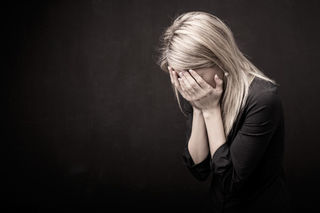Trauma
Feeling Guilty About Feeling Bad
Your pain is valid, regardless of what others tell you.
Posted September 28, 2017 Reviewed by Gary Drevitch

We were recently in the direct path of a hurricane. We were without power for eight days. A neighbor said, "I've been having a lot of problems sleeping lately and crying for no reason. But I feel silly to say I'm traumatized; other people have it much worse."
A friend posted about the hurricane on Facebook, and one of the responses was, "You chose to live there." Another friend responded, "It could have been worse."
I've also seen people post a concern on social media, and others respond with a "First World Problems" meme. People are told by others, in subtle and not-so-subtle ways, that they don't have a right to feel upset after an event, because "others have it worse" and "you chose this."
These statements prevent people from seeking the help that they need. Just because you are told that others "had it worse" does not take away from your pain. In fact, it can amplify your guilt, leading to some confusing feelings.
You may have even asked yourself, Why do I feel so bad? Why can't I just deal with it? Others have it much worse. We can also be our own worst critics, being very harsh to ourselves just when we need to treat ourselves with great kindness. You may have asked yourself, Why do I feel so bad? Why can't I just deal with it? Others have it much worse.
You have the right to feel whatever you are feeling, regardless of what others have been through relative to your experience. Feeling your feelings doesn't make you ungrateful for what you have; it makes you human.
Compounding these feelings is that we have a tendency to compare ourselves to others. This can be reinforced by society: For example, people tell us about someone they feel has exeprienced more suffering than we have. A friend may mean well when they say, "At least you aren't in _________'s situation," but that invalidates your experience. A more helpful thing to say is, "I'm sorry that happened. What can I do to help?"
You can be grateful for other things in your life and still suffer from depression and trauma. Those feelings are not mutually exclusive. It can be confusing when things look to the outside world like they are going well, but you are depressed and/or anxious.
Feeling that you don't have "a right to complain" is one of the reasons people don't seek help. You have a right to feel what you feel, regardless of what others say or how you view your challenges in light of others' suffering. Everyone has challenges; just different ones. Your challenges are a challenge to you, and that makes them valid. Period.
Please take the first step of talking to someone. A good therapist views your challenges for what they are — important, unique to you, and worth taking seriously.
Copyright 2017 Sarkis Media


